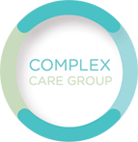
DEPUTY DIRECTOR GENERAL, DISABILITY – UPDATE RE COVID19 COMMUNITY OUTBREAK FEBRUARY 2021, ALERT LEVEL 3 AND 2, ETC:
This update is dated 14th February and is aimed at disability sector providers but there is useful information here for families too, especially given many in our community are employers via Individualised Funding:
14 February 2021
To
Disability Providers / NASCs
From
Adri Isbister, Deputy Director General, Disability, Ministry of Health
Kia ora koutou,
Following the confirmation today of three community cases of COVID-19 in Auckland, the Prime Minister has announced that from 11.59pm tonight Sunday 14 February, Auckland will move to Alert Level 3 for a period of three days, until midnight Wednesday 17 February. The rest of New Zealand will move to Alert Level 2 for the same period. This will be reviewed on a 24hour basis.
While any community transmission of COVID-19 is worrying, we know this will be of greatest concern for our whānau, friends and loved ones living with disability or supporting others who are disabled.
Advice about what Alert levels 2 and 3 means for the disability sector remains the same as the last time we faced this challenge. We will keep you updated with any new advice relevant to you, and the Ministry of Health website will be updated frequently. The Unite Against COVID-19 website, www.COVID19.govt.nz is also a great source of useful information.
Crossing regional boundaries
We’re aware that getting to work was difficult for many during the August Alert Level changes, especially where people lived and worked in different areas. The Ministry of Health and MBIE have developed an online registration system to support business, service, and personal movement across an Alert Level boundary, which will be activated shortly. Further details and a link to the registration system are available here: https://covid19.govt.nz/travel-and-the-border/travel-within-new-zealand/regional-travel/#travel-between-regions-at-alert-level-3
Operating at Alert Level 3
• Disability residential care will continue as usual.
• Any visitors will need to discuss with disability providers. Controlled visits with agreed and named family and whānau and close friends are allowed. A maximum of one visitor at any one time may visit the disabled person in their home.
• In aged residential care, only family visits for end of life / palliative care residents will be considered on a case-by-case basis.
• Family visits for residents in a hospice are allowed, but on a case-by-case basis, subject to public health direction and the hospice’s assessment.
• Planned respite services will be suspended, but urgent respite care may be provided.
• Essential personal care services, such as toileting, washing and feeding, will be provided as usual.
• Some home help, such as house cleaning, may be available.
For more details about Alert Level 3 see here https://www.health.govt.nz/system/files/documents/pages/alert-level-3-guidance-for-disability-support-services-aug2020.pdf
Operating at Alert Level 2
• Disability residential care continues under all alert levels. All services will follow COVID-19 risk screening and infection prevention control, physical distancing measures, and record people’s details to enable contact tracing. PPE guidance is to be followed.
• Extra consideration will be given to how at-risk resident’s health will be protected.
• Level 2 also allows limited opening of facility-based respite services for disabled people. Facilities will contact disabled people and families and whānau to let them know how they will operate following Alert Level 2 rules. Flexibility for respite paid for under Individualised Funding remains under Alert Level 2.
• Essential personal care services, such as toileting, washing and feeding, will be provided as usual.
• Home based personal care services, such as showering and feeding, and home help, such as cleaning, are available. Infection prevention and control measures must be adhered to for essential care services that require close physical contact. Staff movement should be minimised between homes and household management activities should maintain physical distancing where possible. All equipment and modification services are now available following Alert Level 2 rules.
For more details about Alert Level 2 see here: https://www.health.govt.nz/system/files/documents/pages/alert-level-2-guidance-for-disability-support-services-aug2020.pdf
Ngā mihi
Adri Isbister
Deputy Director-General
Disability
Ministry of Health
 Complex Care Group
Complex Care Group